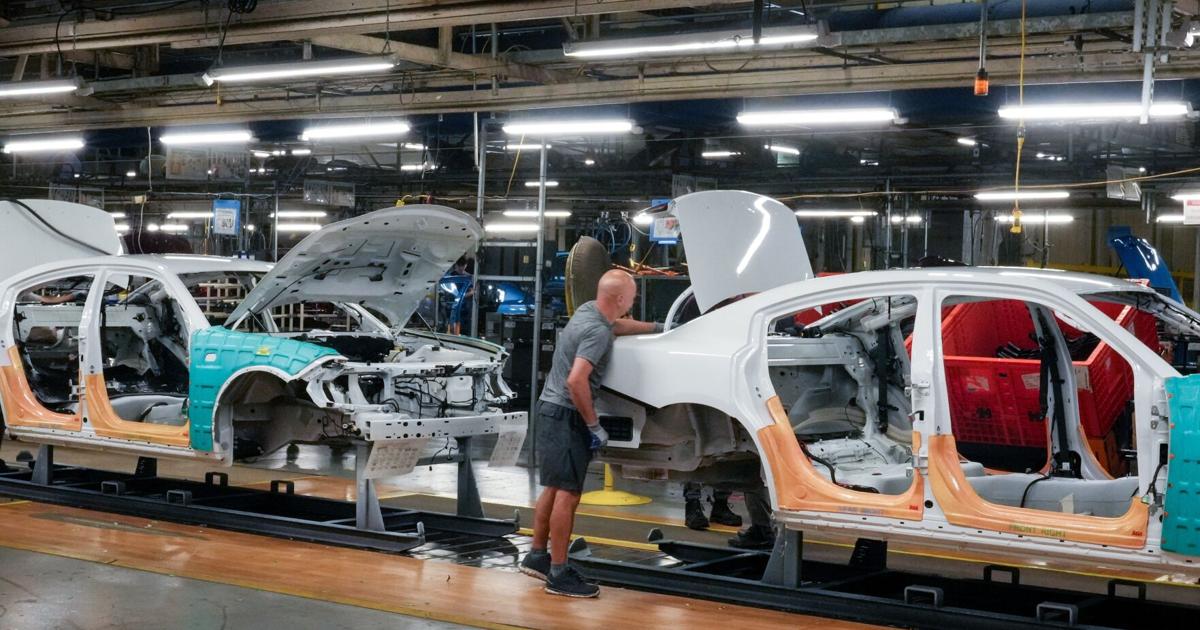Canada’s automotive heartland is reeling a day after Stellantis delivered a blow to hopes it will restart its assembly plant in Brampton.
”I am very concerned, very concerned for the future of the auto industry in Ontario,” said Oshawa Mayor Dan Carter Wednesday.
On Tuesday, Stellantis announced a $13-billion U.S. manufacturing expansion, and is moving production of its popular Jeep Compass from Brampton to Illinois.
The move comes amid a growing trade war sparked by U.S. President Donald Trump’s tariffs.
While Carter says he has a strong relationship with General Motors, which has a major presence in his city, the Stellantis news was “very disappointing.”
He suggested it’s not a coincidence that the Stellantis news comes just a week after U.S. commerce secretary Howard Lutnick said Canada should be prepared to come second in automaking.
“What I am most concerned by is Lutnick’s comments,” said Carter. “They were really derogatory. … And we don’t know exactly what that will look like in regards to the ripple effect.”
And, Carter stressed, hitting auto assembly in Canada will harm the U.S economy just as much as it harms Canada, Carter warned.
“It seems like the Americans are making decisions that are going to impact the auto industry significantly in Ontario and I think it’s going to be detrimental to Canada, Ontario and the United States,” said Carter.
A furious Ontario Premier Doug Ford also slammed Stellantis’s decision in a statement emailed Wednesday morning.
“I have spoken with Stellantis to stress my disappointment with (Tuesday’s) decision … and with Unifor to be clear that I will never stop fighting for Ontario’s world-class autoworkers,” Ford said. “This decision is especially painful for those workers who have been out of jobs for months.”
Ford added that no provincial funding has yet gone to Stellantis for its Brampton retooling, and said none would be coming unless his government gets a firm guarantee the plant will reopen.
“Stellantis has a duty to live up to their promise to Brampton autoworkers and continue with their allocation in Brampton,” Ford said. “No provincial funding will be given until we receive clear assurances on when the plant will restart operations and meet that commitment.”
In a written statement, the head of the Ontario Chamber of Commerce said hitting one part of the highly-integrated North American automotive industry risks disrupting it all.
“The only thing that’s clear is that Trump’s tariff policies are toxic to the highly integrated North American auto industry,” said Daniel Tisch. “The egg can’t be unscrambled. The sooner that Canada, the U.S. and Mexico recommit to integration and collaboration, the brighter the future will be for everyone.”
In North America’s highly-integrated automotive supply chain, raw materials and parts cross the border up to seven times en route to becoming a finished vehicle.
The Stellantis news could be just one of many shoes to drop and risks doing permanent damage to the Ontario and Canadian economy, warned the head of the Toronto Region Board of Trade.
“Yesterday’s announcement … is a worrying demonstration that we are rapidly losing critical mass in a foundational sector of Ontario’s economy,” said CEO Giles Gherson. “There could be more shoes dropping as our manufacturers shift production south of the border and increasingly use U.S. steel in auto parts. … America First is already inflicting significant damage to auto and steel sectors, threatening a permanent drop in Canada’s GDP.”
In a video address to a Canada-U.S. trade conference last week, Lutnick bluntly said Canada must settle for coming “second” to the U.S. in the automotive industry.
“Car assembly is going to be in America, and there is nothing Canada can do about it. The question is, what is Canada going to do instead?” one source quoted Lutnick as saying at the conference, which was held under the “Chatham House Rule” that bars reporters and media coverage.
With files from Robert Benzie and Tonda MacCharles



